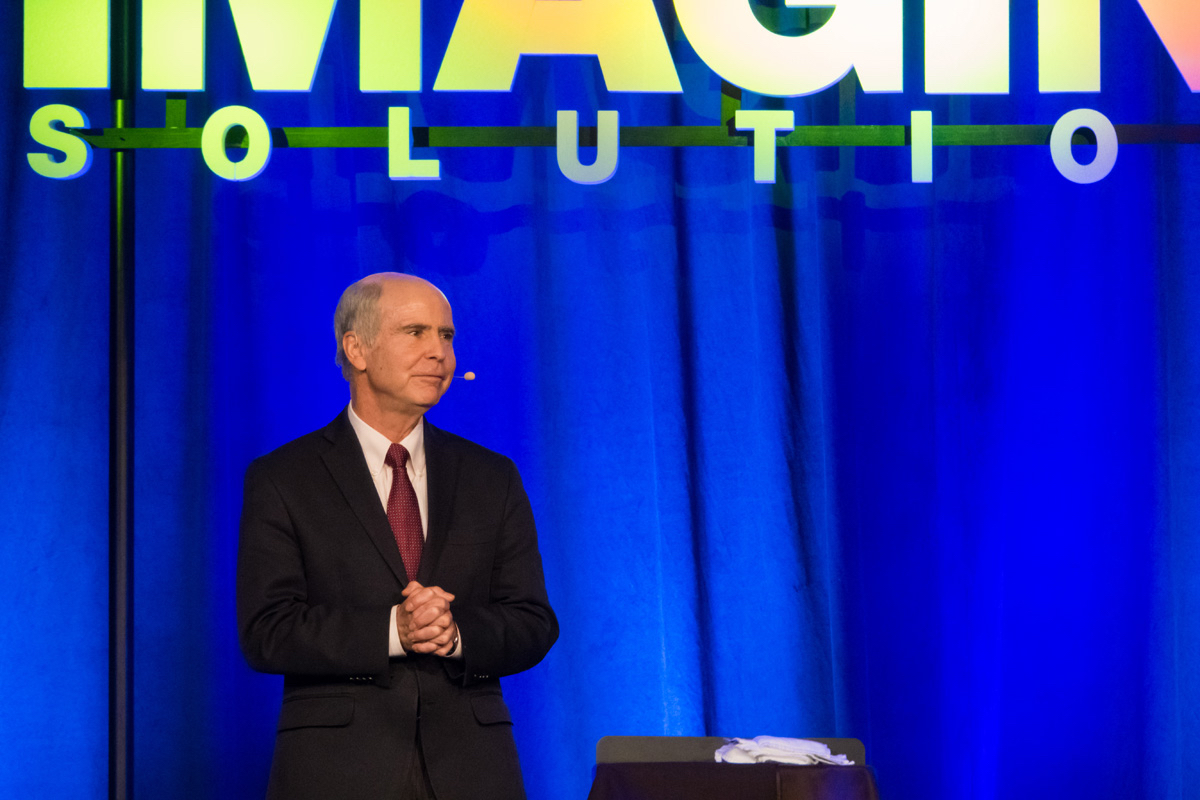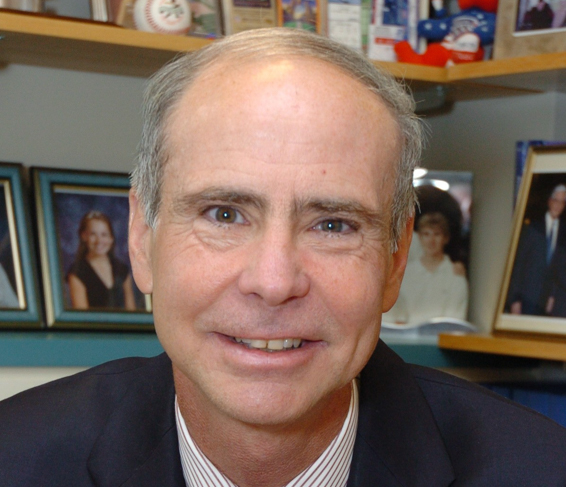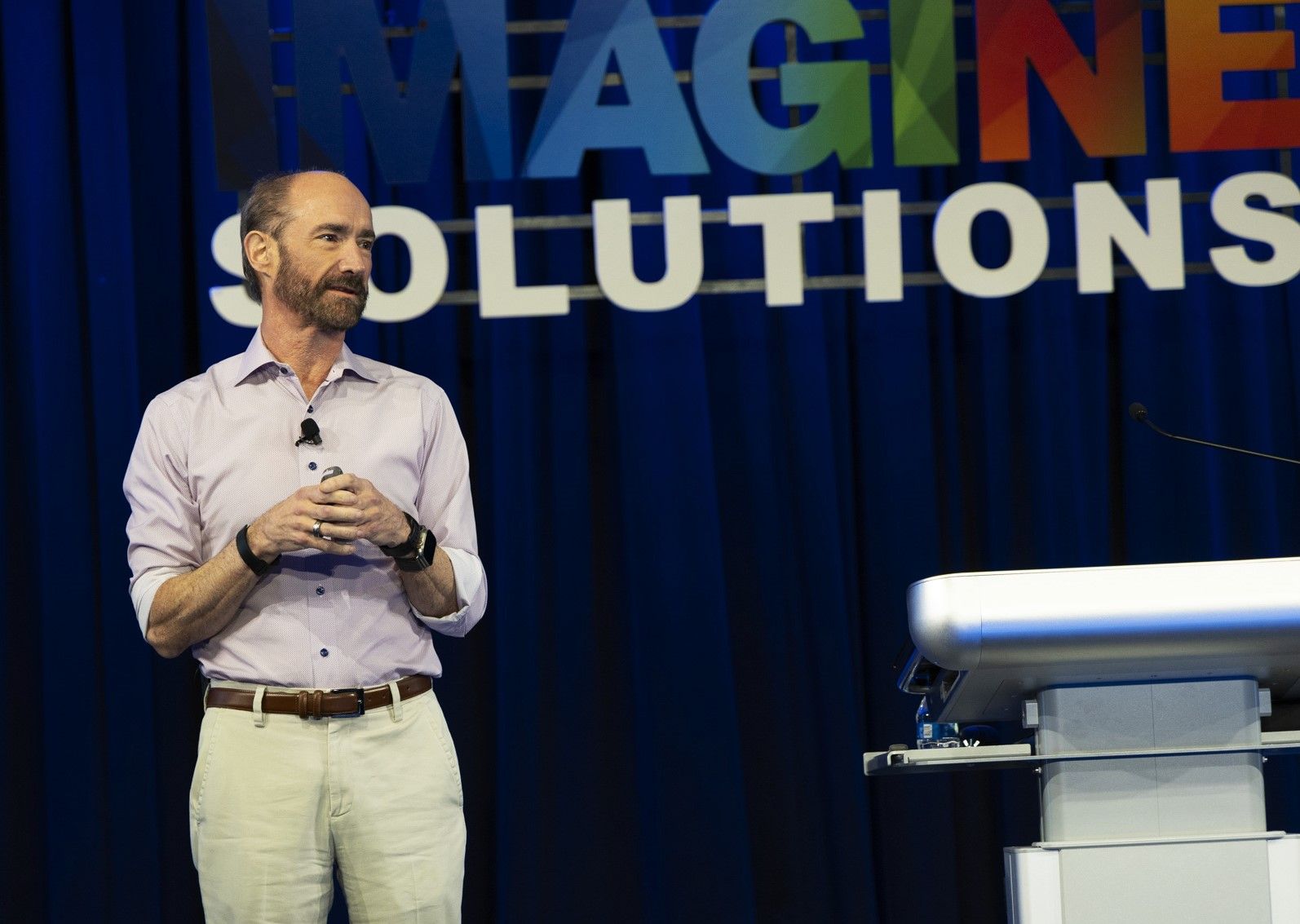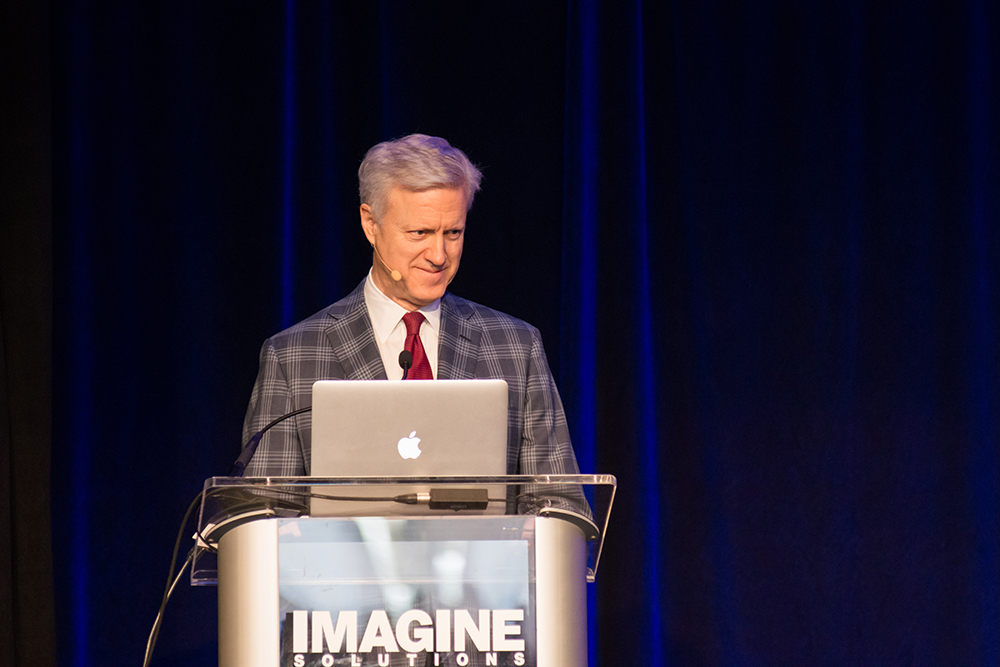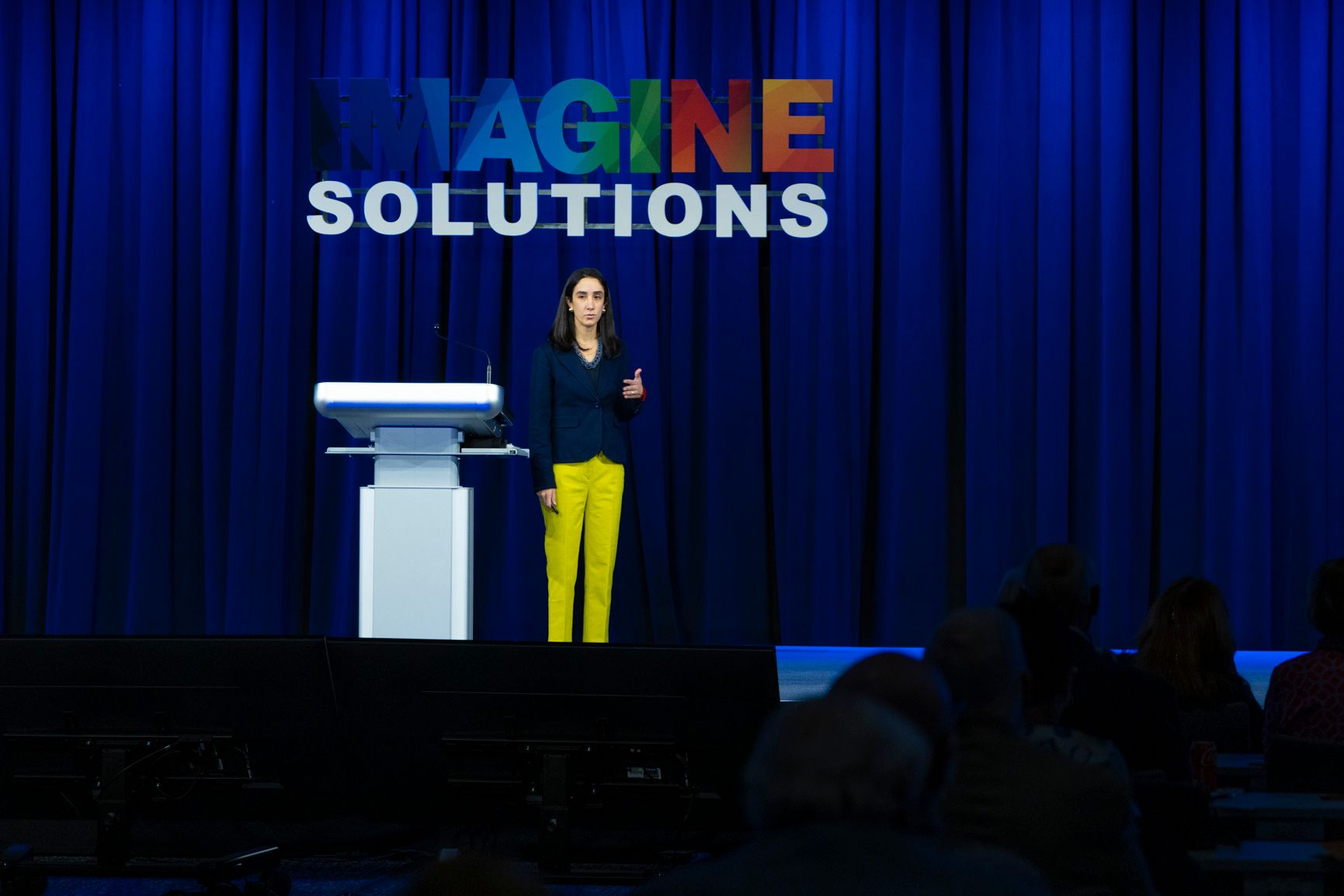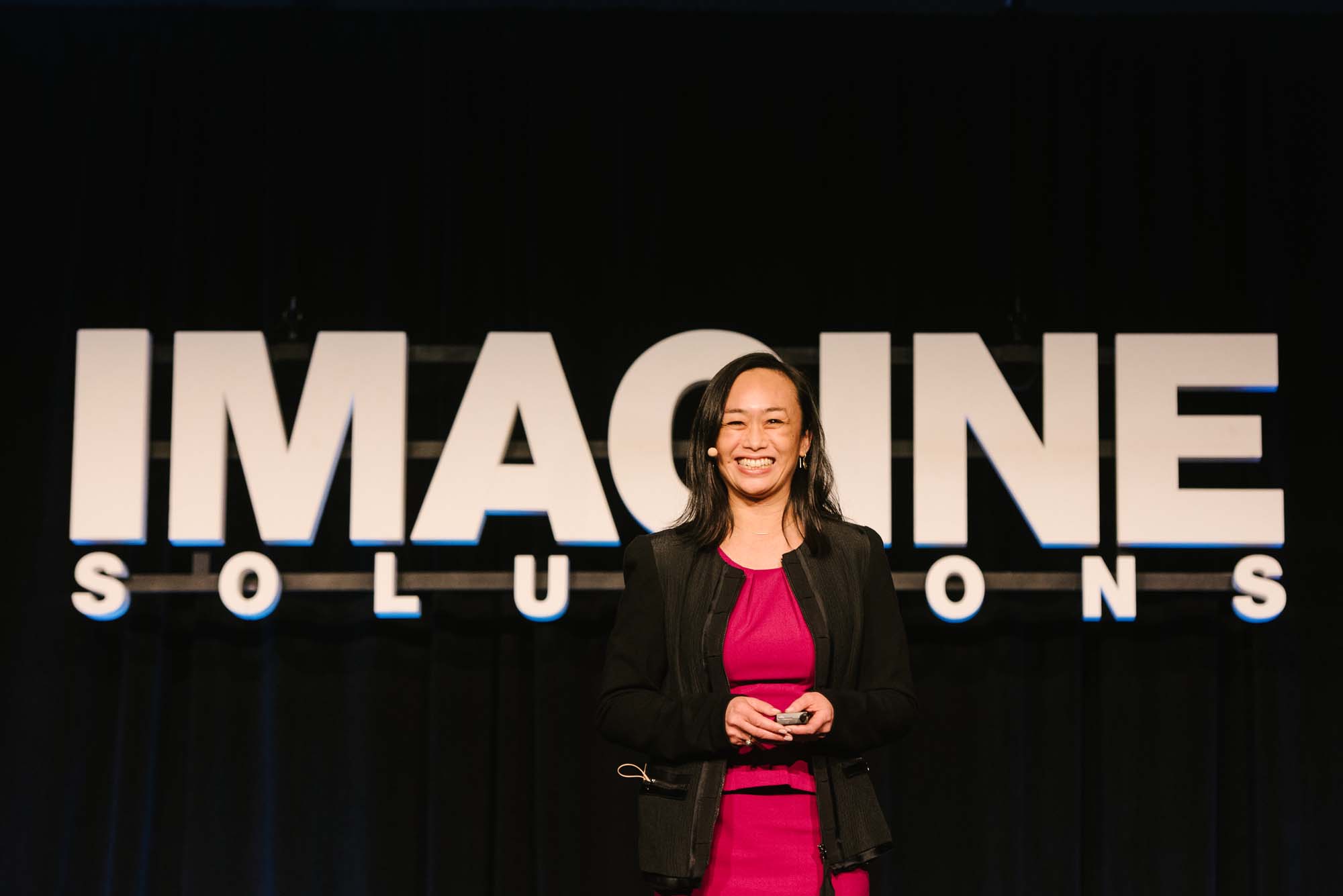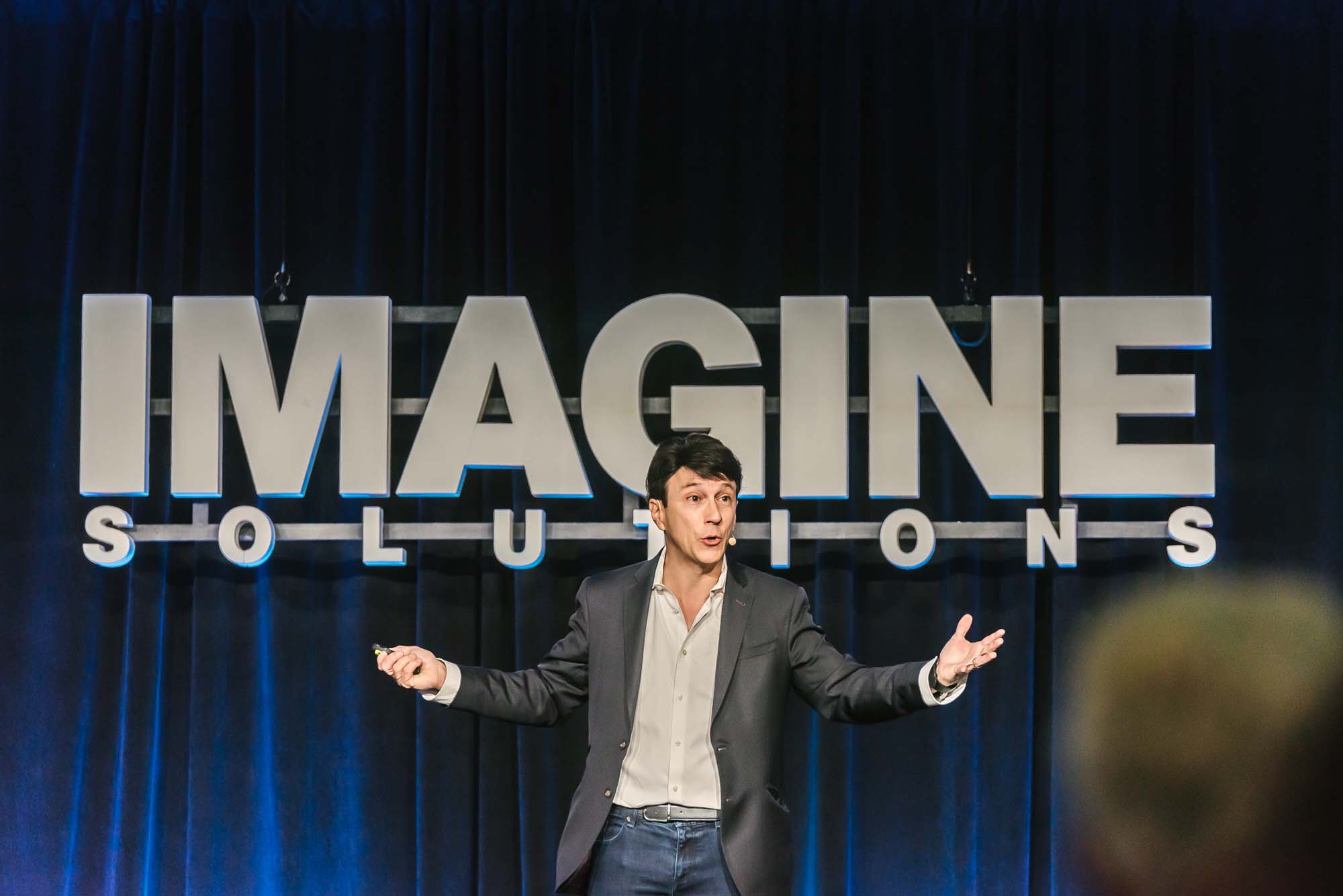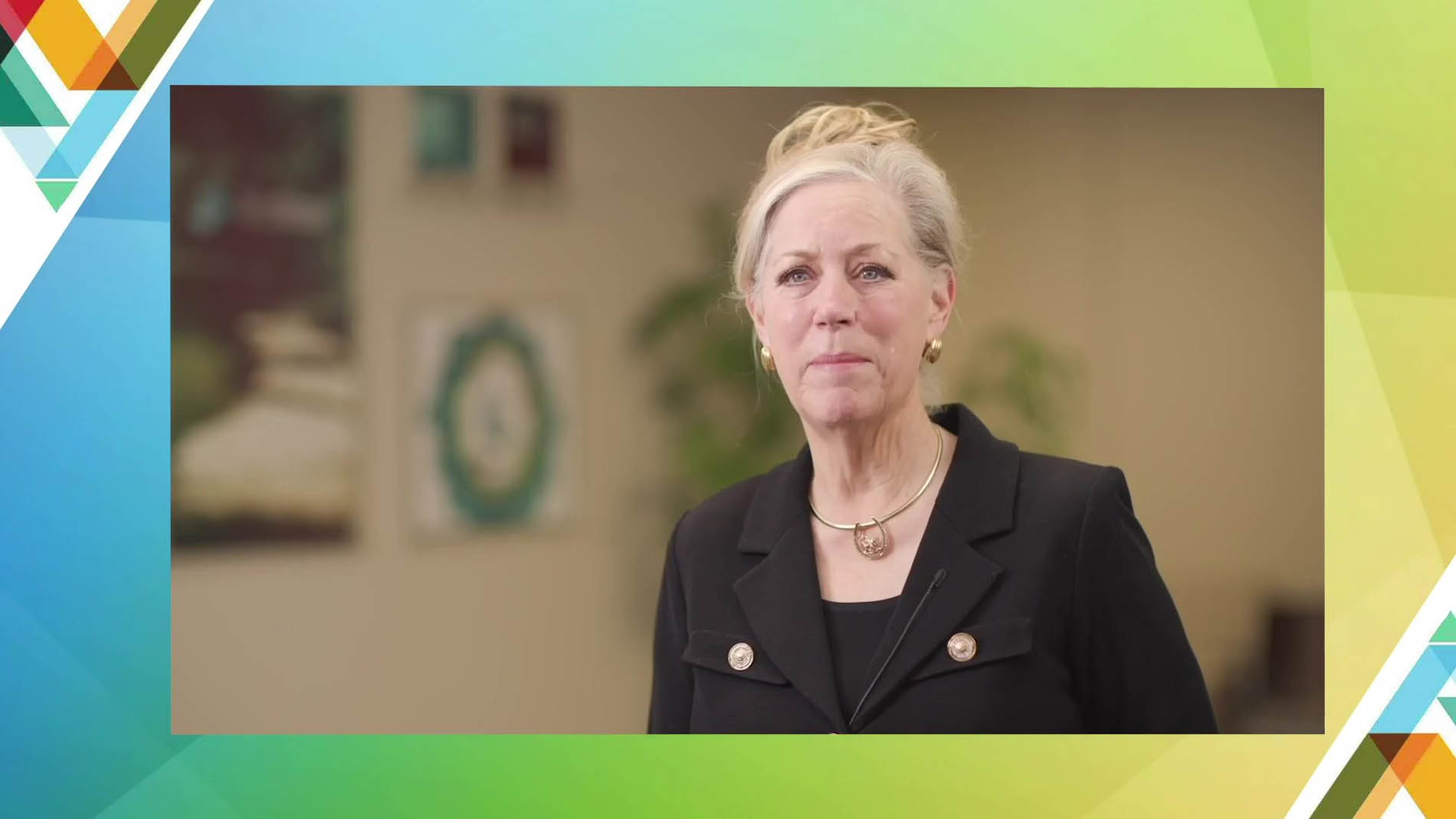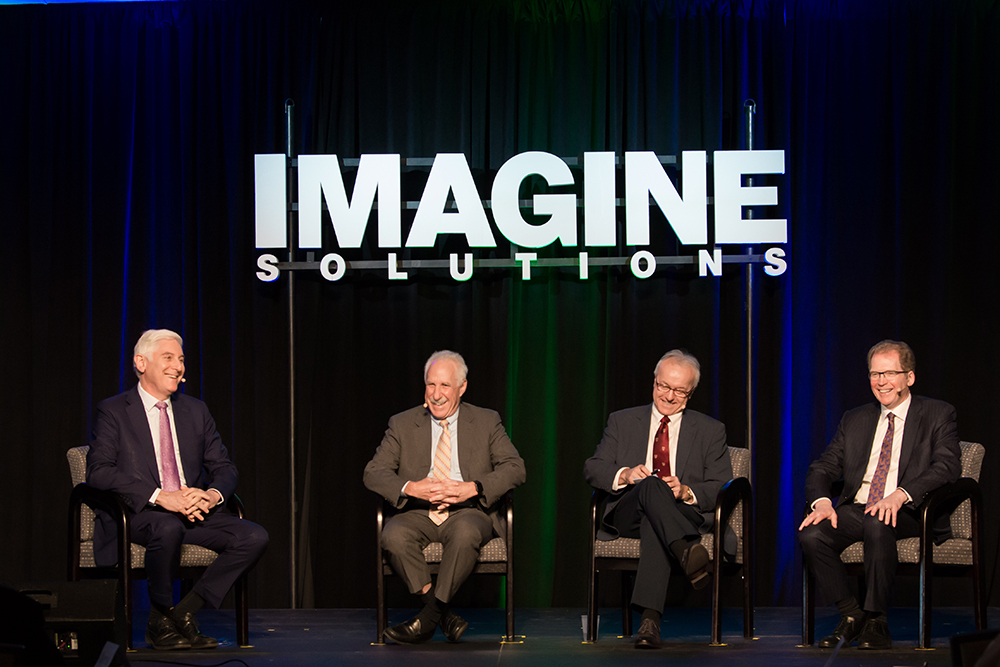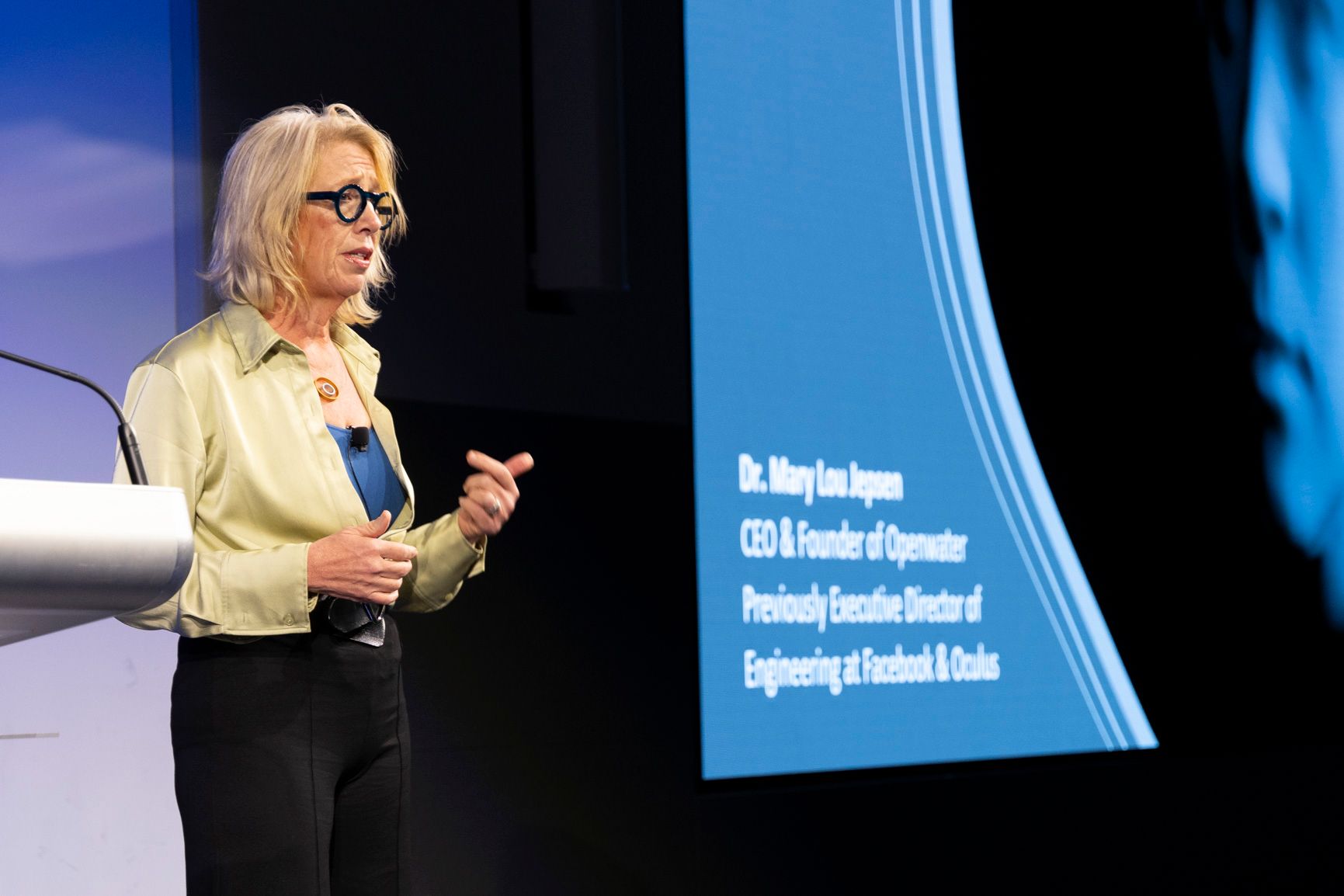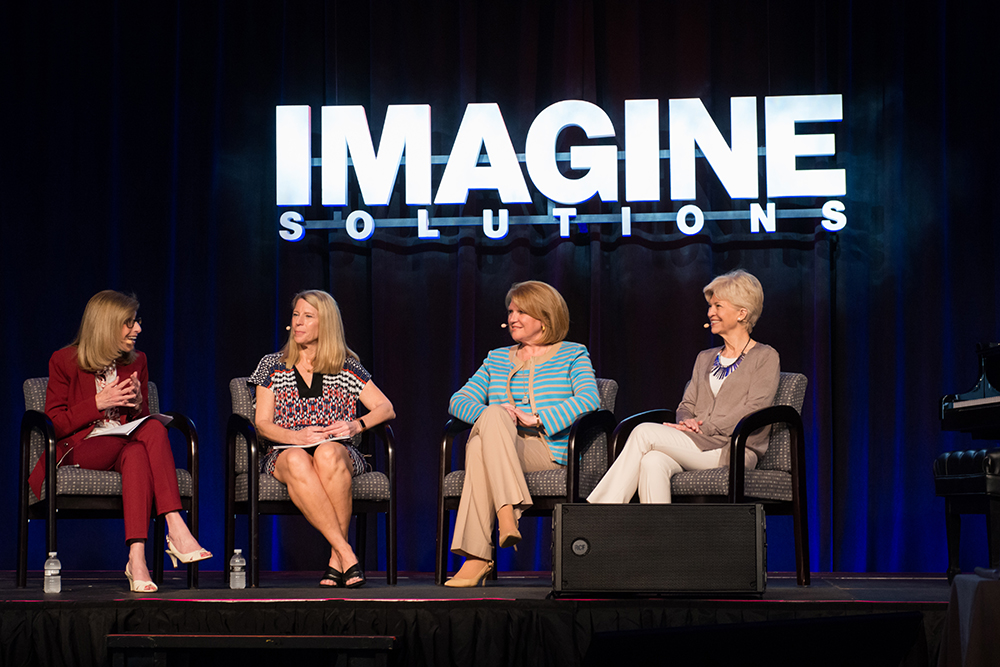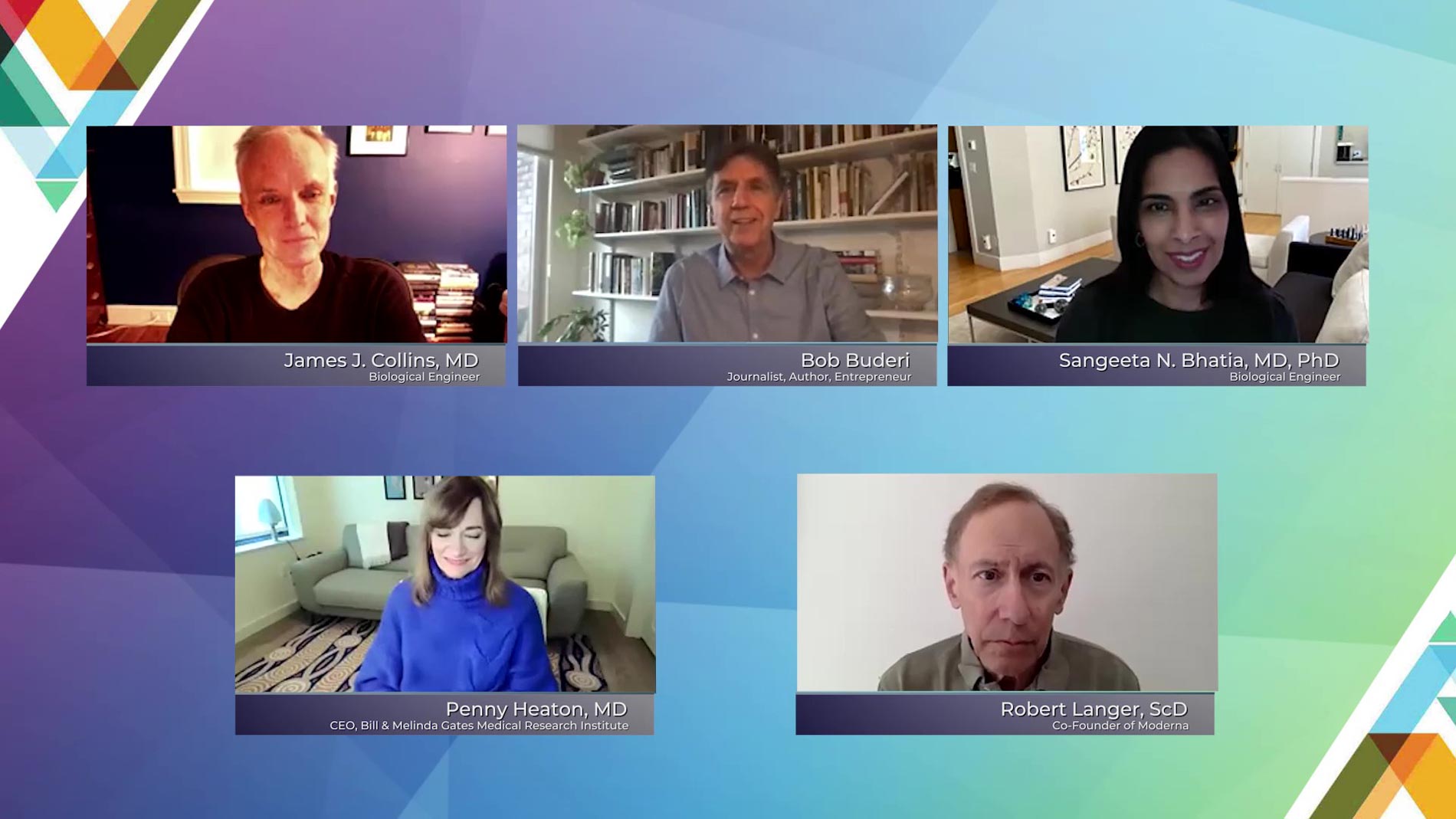Outsmarting Cancer Cells
Dr. Ken Anderson is one of the foremost experts on the cancer of multiple myeloma. He opens his talk with two tenets on which he bases his work: to undertake research in service of improving patients’ experience of diagnosis, prognosis, and treatment, and to take care of patients like family. Research is necessary to advance the treatment of any disease. Medical research requires its own kind of creativity, thinking in abstract and evolving ways about how best to address disease progression. Targeted treatments are increasingly available and viable, diminishing drug resistance. Gene-based and immune therapies, including vaccines, are also becoming more and more promising.
00.00
dr. Ken Anderson is the Kraft family professor of medicine at Harvard and one of the world's great multiple myeloma experts those of you who are football fans might think the Kraft family only invests in football players ken has been called the Tom Brady of hematology very much otis and it's really a pleasure to be here as was mentioned i'm from boston and so we're having a wonderful July day in New England I appreciate that very much and it's also been very inspirational for me to hear every single speaker being so committed to their cause it really makes me feel taller to be honest in any event I want to tell you a little bit about me before I talk about some progress in cancer and a disease called multiple myeloma but I grew up in a
01.01
small town in Auburn Massachusetts and I was the first one to go to college and my family I had a mother who was a nurse who influenced me to go into medicine and I was going to be a GP in a small town and I went to college and I really liked science and biology and I went to med to also work as a volunteer as an orderly so it sort of confirmed my interest in medicine but I went to medical school as a consequence and I want to mention this I met a first mentor his name was Richard L Humphrey at Johns Hopkins and he taught me two important lessons which I think are kind of a theme of what we're hearing today at this wonderful meeting the first lesson he taught me was do research but do something to improve the diagnosis prognosis and treatment of patients and the second thing he mentioned was take care of patients as family and those two tenets
02.01
are right in my heart each and every day to this day and he remains for me not only a mentor but a role model and a treasured friend so when I went into the laboratory thirty-eight years ago I did I set out to make model systems to overcome resistance to traditional drugs and I work on a cancer called multiple myeloma which was a fatal bone marrow cancer and people only live two months or so when we started out at that time because of these models in the laboratory and animals were able to define mechanisms to outsmart this tumor cell I call them Achilles heels weaknesses or vulnerabilities to target so as to overcome resistance to traditional drugs and improve patient outcome and I'm proud to tell you here this morning that is a consequence of these efforts or this afternoon that there are now 20 new treatments fda-approved for patients with myeloma
03.02
and many patients now live a normal lifespan with what can be a chronic illness and I truly believe cure is on the horizon now some of these patients you will remember one was named Geraldine Ferraro who ran for vice president in 1984 and lived for 13 years in spite of the fact that there weren't any major new medicines back then but she was another hero of mine and we testified in front of Congress for cancer research funding etc more recently I take care of Tom Brokaw that I think most of you know who told us for many decades the real news and told us about Rockets going up and walls coming down and the reason I mentioned him here today is he's a master communicator and he unfortunately got multiple myeloma but he turned his illness into hope and honestly a plan for dealing with cancer for patients and their families
04.01
worldwide because he wrote a book called a lucky life interrupted which really lays out a plan for how the patient and their family can most effectively live with their cancer and you can see he's totally healthy and very very active today just before coming here I saw a patient that I treated in 1988 that would be 33 years ago or 30 years ago with a clinical protocol of a novel agent and I tell you that because this patient went on a clinical protocol we didn't know whether it was gonna work or not and I saw her because last week because she's now 30 years later doing wonderfully she's going to be not just a grandmother but a great-grandmother so this is wonderful career of doing science that you love watch the science transform the diagnosis prognosis and treatment of cancer but at the same time we get to train the next generation of caregivers and
05.01
researchers so I have had people come from all over the world I call it the United Nations against multiple myeloma but these now folks have come and trained some of state in America but many have gone back to their own countries and they remain leaders in myeloma research and care around the world so let me just tell you a couple of examples of how this actually works so we tried to find vulnerabilities as I mentioned or Achilles heels multiple myeloma is a bone marrow cancer and it is characterized by too many antibody forming or protein forming cells and so we reasoned a long time ago in the late 90s actually that if we made it impossible for the tumor cell to deal with these proteins that it's making excessively maybe it would fill up with its own protein and commit suicide and die and in fact in all of our cells
06.01
there's a garbage disposal system called the proteasome and in fact we inhibited the proteasome with a drug called bortezomib in the late 1990s and that's exactly what happened the myeloma cells died clinical responses occurred and now pretty much everyone with myeloma around the world is treated with proteasome inhibitors not only that there are second generation that are more potent oral and better tolerated proteasome inhibitors unfortunately though as you've heard in the previous two talks cancer is evil and very clever so these cells become resistant even to novel agents well it turns out when myeloma becomes resistant to the proteasome inhibitors it brings out the protein to another garbage disposal system called the agarose Oum so when we figured that out about ten years ago we then
07.00
developed together an inhibitor of this alternative garbage disposal system and then if you add it in the zooom inhibitor and this other one is called a histone deacetylase inhibitor it doesn't matter the names but there's only two garbage disposal systems by which normal and cancer cells can get rid of proteins and if you block them both the cells die and so this combination was able to overcome resistance to the proteasome inhibitor alone now you've heard wonderful talks about the genetics of cancer and immune therapies and I just want to mention a couple of examples in myeloma to make this very real for all of you so firstly in multiple myeloma we have tremendous genetic chaos right from the time the patient is diagnosed and even worse there's continual DNA damage or damage to the genes and continual worsening of the genetic program so what is being
08.02
done about this there is first of all an effort to target some of the abnormalities these mutations you heard about in the previous talks with specific medicines that hopefully will block the circuits that are abnormal that are allowing the cell to grow resist drugs or survive and hopefully overcome drug resistance you may have heard this but in the clinical trial setting for cancer we have what's called basket trials what that means in plain English is that many cancers have the same genetic abnormalities or circuits that are broken and we can use the same medicines whether it be in lung cancer or myeloma to block the same pathways and hopefully have benefit the other thing you heard about with precision medicine just now I will translate to
09.00
the clinic and what's called umbrella trials so even though when we see patients with new cancer all of them look the same under the microscope if we do the genetics of those cancers they're all different or many of them are different because they have different wiring problems and so under the umbrella of multiple myeloma diagnosis we then treat patients based upon what's wrong with their wiring either trying to blow the fuse on a growth circuit or turn on the death circuit in those cells the final thing that we do in terms of the genetics is if we can't target the actual abnormalities maybe we can target the consequences so for example cancer cells are hardwired to multiply really very rapidly and their metabolism demands are really high and they're really stressed and we call that in
10.00
medicine replicative stress and fortunately right now we have medicines that don't target the cause that's making them divide so rapidly but we target the stress we make it impossible for them to deal with the stress that's a consequence of their genetic abnormality and we push them over the edge and they die so genetics is really translating to clinical trials even though it's very complicated we can treat the absolute abnormalities or we can treat the consequences now you also heard a beautiful talk about immunity immune therapies so I want to mention in myeloma to put it in real terms for you how immune therapies are being used to resist overcome resistance to other treatments and why are we so excited about the immune system we're excited because the immune system is potent it is selective and it is adaptable so if
11.02
you get a cold today you get better and if you get an earache next week you get better and it's just possible that the immune system might be able to outsmart this genetic evolution that I just mentioned this continual ongoing changes to try to resist treatment so the immune therapies have great potential and in the late 1990s we developed a class of drugs called the immunomodulatory drugs and as the name implies they turn up or enhance the patient's own give an immune system against their own cancer their lenalidomide and pomalidomide are some of the examples but they were approved in the early 2000s and in fact are very effective at overcoming resistance to traditional drugs and we learned from our colleagues in infectious diseases who taught us that if you want to avoid resistance to
12.03
different infections like tuberculosis or like HIV you use combinations of drugs together right from the start and you won't get resistance as a consequence so as we're here this afternoon the bortezomib proteasome inhibitor I told you about blocking the garbage-can mechanism and this immunomodulatory drug lenalidomide are the most common team used together to treat myeloma and they achieve universal responses now what about other immune therapies you heard very nicely about vaccines well we are now vaccinating patients with very early stage multiple myeloma cancer that would not otherwise be treated and the goal here is just think about it to vaccinate somebody at a very early stage get an immune reaction just like you might get
13.00
two tetanus or smallpox or something else your memory immune cells your own immune system remembers so that in fact if cancer tries to go to grow rather or return your immune response your own memory immune response will prevent that from happening so the idea who would have thought just a few years ago but the idea of preventing somebody from getting active cancer is real the second class of an immune drugs I want to mention are the antibodies and you heard a little bit about that just now but antibodies basically are medicines that are given by vein they go in and they bind to the fingerprint proteins on different cancers such as multiple myeloma and once those cells are labeled for destruction the immune system is clears those cells just like it would do to a bacterial or a
14.02
viral infection and those are now utilized broadly in cancer both solid tumors and breast cancer and in liquid cancers such as chronic lymphocytic leukemia lymphoma and multiple myeloma now you heard about a third class of immune therapies besides the vaccines and the antibodies another class are what's called the checkpoint inhibitors you heard pd-1 and PDL one but just to put this in real terms for you this is like taking the brakes off the immune system in many cancers including myeloma next to the evil cancer cell are the your own immune cells and they just really want to do the right thing they're programmed to get rid of the cancer but they have on them pd-1 those immune cells and PDL one as an example is on the cancer and that binding turns on a break of the immune
15.01
system and as you heard we can use antibodies to relieve that block take the break off the immune system and in fact get unprecedented responses in cancer and the final immune therapy I want to mention that's being used in myeloma and elsewhere as you've heard are these cellular therapies you've probably heard about car t-cells but the plain way of saying this is you actually take from patients their own immune cells and outside of the body you program them or educate them to recognize a protein or a target on their own tumor cells and you grow up these cells in very large numbers and you transfuse them back as I like to say is their own immune army and you have seen and you mentioned was mentioned here a little girl with a ll but this car t-cell therapy is very effective even in
16.02
patients in the ninth inning with two outs and two strikes there are remarkable responses being achieved and what I want to share with you in the not-too-distant future because we have heard an awful lot of futuristic talk here today it's not going to be too long before normal donors like all of us are going to be donating our immune cells and then through genetic editing it's going to - things are going to be done firstly those cells are going to be programmed to recognize certain cancers by virtue of their fingerprint proteins just like the car t-cell but the second thing that's going to be done is since these are from normal donors and who aren't related to the patient at all gene-editing will allow us to take away the ability of those immune cells to recognize the patient as foreign so what I'm basically saying is you'll have a
17.01
cellular bank that you'll go and get your cancer treatment it'll be off the shelf and it will be immune based and it will be targeting selectively the cancer potently effectively and with fewer side-effects and it's not a pipe dream that will happen in the next few years so all of that I've said is really a really a collaborative effort Otis kindly mentioned that I'm very into the Patriots which is not always a good thing to say but the Patriots do win on occasion and what I've been Illustrated for you here is that there's a collaboration between academic investigators basic discovery clinical investigators biotechs pharmaceuticals the FDA and the regulators all inspired by the patients who are heroes each and every day and supported honestly by the American Cancer Society highlighting the
18.02
importance of philanthropy in this effort so in closing I just want to say and a couple of other speakers have said it you know in this world you think about what's happening that many turbulent times and you wonder whether in fact we've forgotten to take care of each other in this world and what I've tried to tell you about and what I think is illustrated in this meeting is that all of us together by supporting various causes by supporting research we are actually helping patients and their families all around the world appreciate good health and milestones of life that otherwise would not have been possible and at least to me most importantly and because and with the help of the ACS everyone we are all together giving the Gift of Hope and the Gift of Life to
19.01
patients and their families and there is no greater gift than this thanks ever so much [Applause]

